Three gold medals of the European Under-12 Championships in classical chess, four medals of the Polish and European Junior Championships in rapid and blitz chess, and a jump of 225 Elo points in four months. Over the last year, twelve-year-old FM Patryk Cieślak began to make himself more and more comfortable in the chess world. In an interview with us, he told us about training camp with Boris Gelfand and Elizabeth Paehtz and his last great performance at the Reykjavik Open.
Jan Kozak: First of all, I would like to welcome you and thank you for the opportunity to conduct this interview. Let's start with a question about the place where we first met. How did you like participating in the WR Chess Juniors in Dusseldorf?
Patryk Cieślak: I really enjoyed participating in this event because it was well-organized and I was able to gain a lot of good and important experiences from it. I was also able to attend lectures by the legendary Grandmaster Boris Gelfand and the best German chess player Elizabeth Paehtz. I also took part in a tournament with other strong juniors.
JK: How did you find out about this event and the online qualifications for it?
PC: I found out about it through an invitation from the Polish Chess Federation.
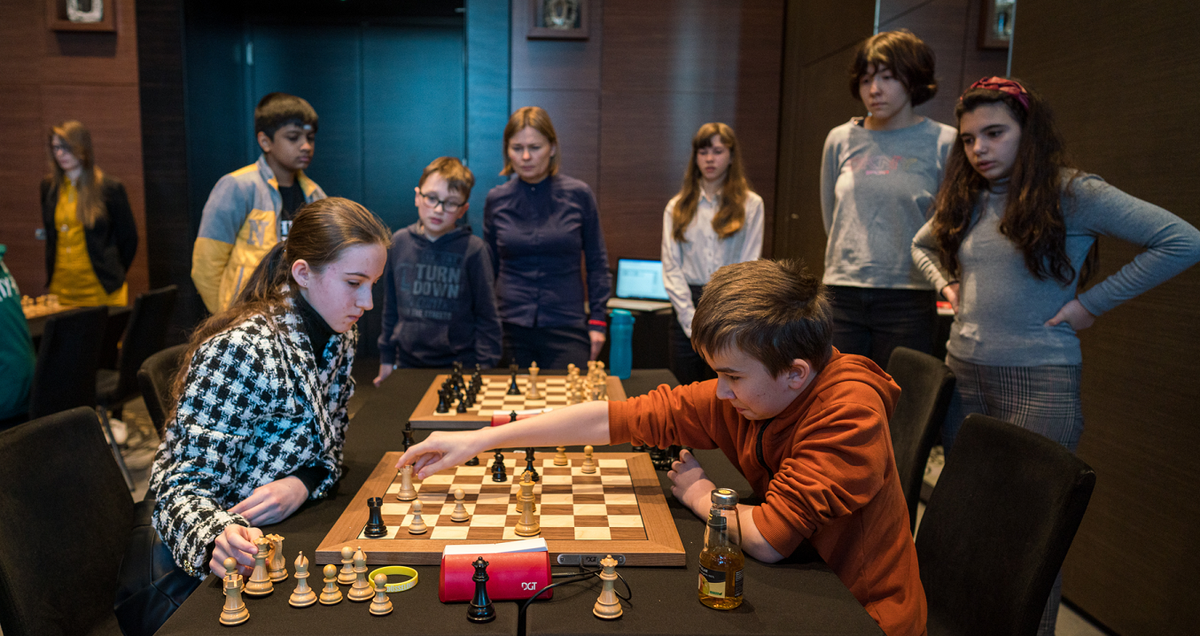
JK: Did you make any acquaintances with other strong juniors during your stay in Dusseldorf?
PC: Yes, I met several boys of a similar age and chess level there. I was able to talk to them, and during our free time we played a few casual games.
JK: How do you evaluate your classes with Gelfand and Paehtz? What did you learn from them and which ones did you like more?
PC: The classes with them were different. In the classes with Boris Gelfand, I was able to practice positional play and learn new things from it. We also analyzed his games from the past. In the classes with Elizabeth Paehtz, we had to solve a lot of exercises on various topics: attack, defense, calculating variations. It was a mix of everything. The teachers gave us various tips on these topics.
JK: Immediately after Dusseldorf, you flew to Iceland to play in the Reykjavik Open. How do you evaluate your performance?
PC: I evaluate my performance at the Reykjavik Open as very good, among other things, because I was able to earn a norm for the International Master and got good results in games with Grandmasters! I won one, drew with two, and lost only to the winner of the whole tournament, Nils Grandelius. I gained important experience at this strong tournament.
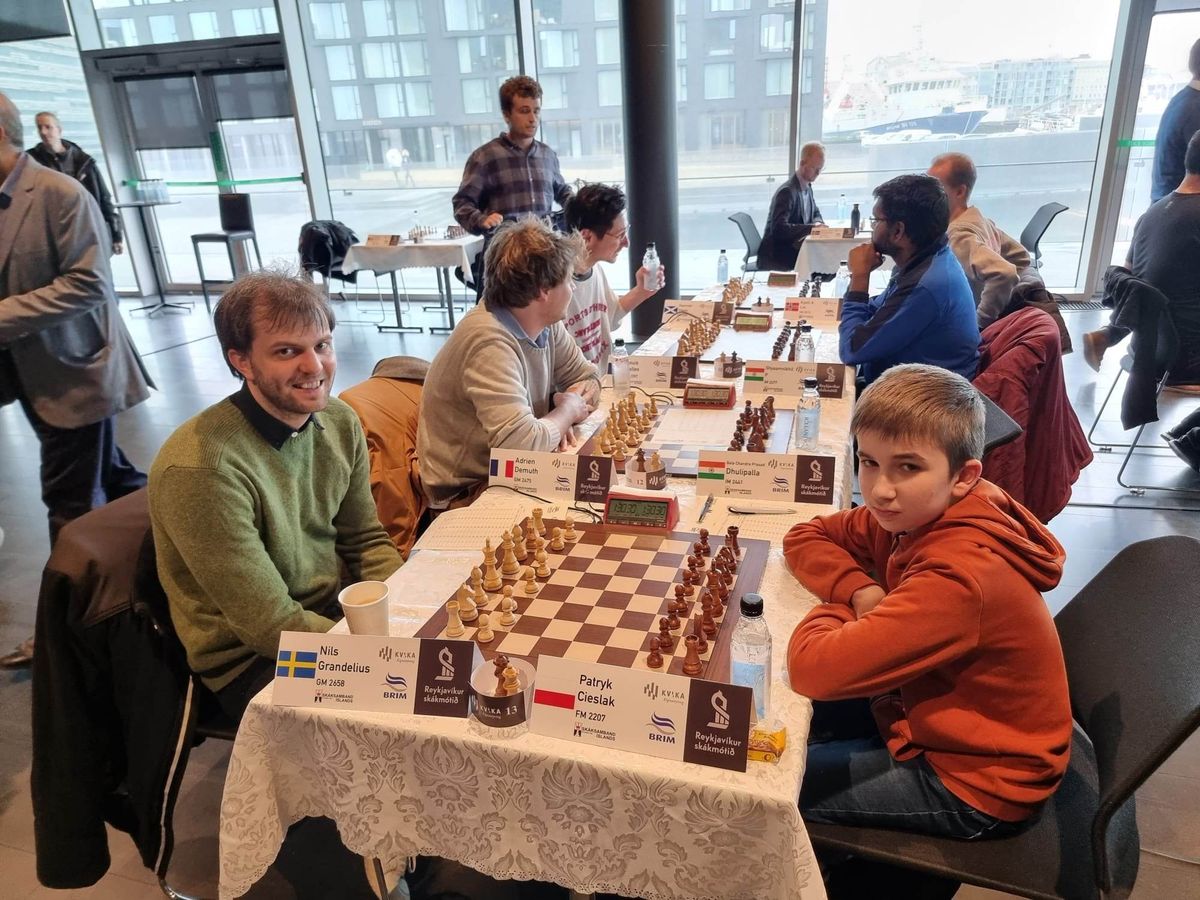
JK: How did you feel after your victory over Grandmaster Fier?
PC: I was very happy! It was my first victory over a Grandmaster in a classical game. After that victory, I felt that it could be a very good tournament for me.
JK: Have you ever beaten grandmasters in rapid or blitz games?
PC: I managed to beat a grandmaster once or twice in live rapid and blitz games. I have beaten grandmasters more frequently online. Fier was the first grandmaster and the first player with a rating of 2600+ whom I defeated.
JK: Your first major success was winning the European Championship Under 12. I want to ask you, what does it feel like to have such an achievement on your list?
PC: It was an important success, and it feels great to win gold at the European Championship. I remember the trip very well; it was very well-organized. There was time for relaxation, lots of attractions, and despite a weaker start to the tournament, I am happy with my game, that I was able to score 6 points out of the last 6 games. I have very fond memories of my stay in Antalya.
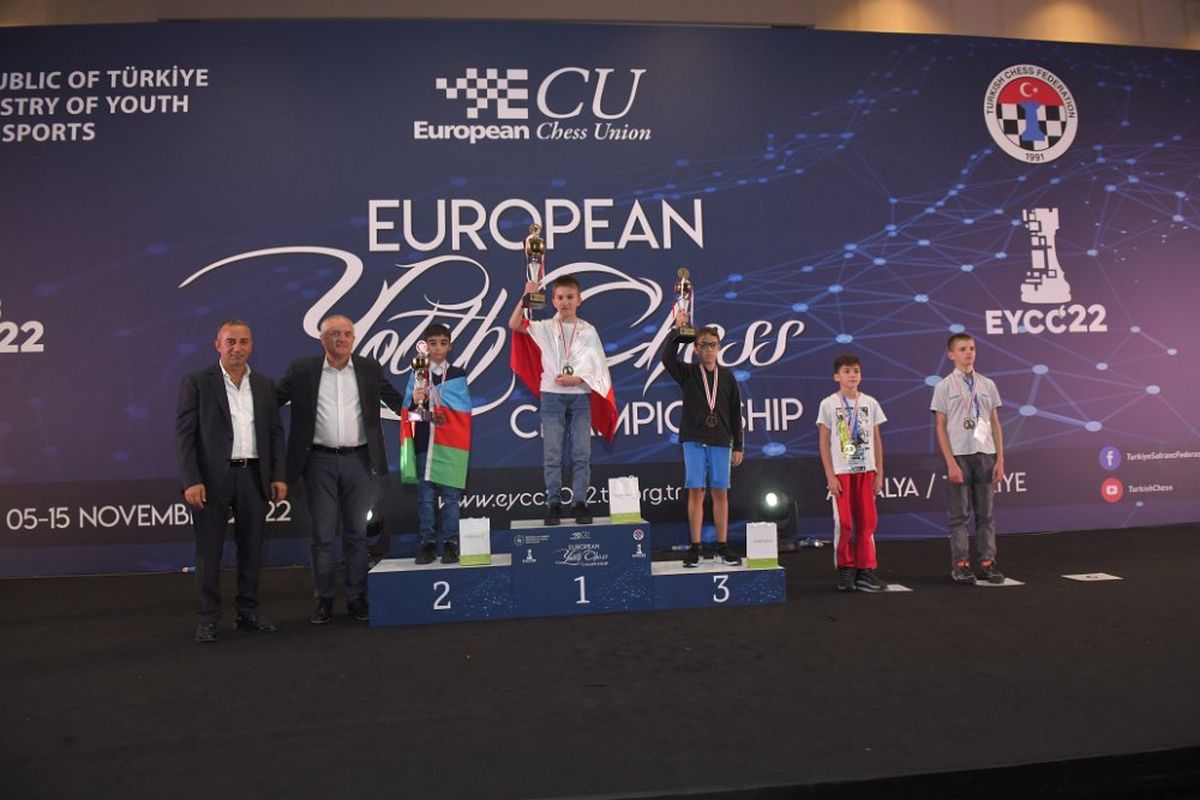
JK: You are very young, and you play in many tournaments, you have many trips, including to the European Championships. How do you combine school, playing, and training?
PC: I am currently in the 7th grade, and the material in school is not difficult for me; I have no problems in school. When I come back from a tournament, I have to spend some time doing homework, but it's not that difficult for me. After school, which I finish around 2:00 pm, I have a lot of free time, which I can devote to training, so I don't think I have any problems with that.
JK: Who do you train with? Do you have a coach or do you prefer to work independently with books?
PC: I train a lot on my own, but I also have a coach. Currently, I am training with Grandmaster Daniel Sadzikowski.
JK: During training, do you use engines, or do you prefer to train using only your own brain?
PC: I use engines, but during opening preparations, there are often complicated variations, and it's hard to make a decision by myself, so sometimes it's worth checking with the engine to be able to play the opening more accurately. During the middle game, I often use the engine during analysis, when I analyze the game alone or with a coach, then I use the engine to see where I made a mistake. I rarely use the engine to evaluate the position, unless I'm doing some kind of exercise in calculating variations and I want to make sure of the solution.
JK: Do you also use publicly available courses on Chessable, published by Giri, So, and other grandmasters, or do you mainly rely on your own notes?
PC: I usually do the openings on my own or with Mr. Daniel Sadzikowski during the classes. Sometimes I use various courses on Chessable or other publicly available materials, but quite rarely.
JK: Aren't you afraid that using publicly available materials will make your opponents better prepared against you?
PC: We usually work on the openings independently with Mr. Daniel, finding different ideas, and then we develop them. You can get various cool ideas from courses on Chessable, but that's not all. After coming out of the opening, each player must demonstrate their skills, including counting variations or finding a game plan.
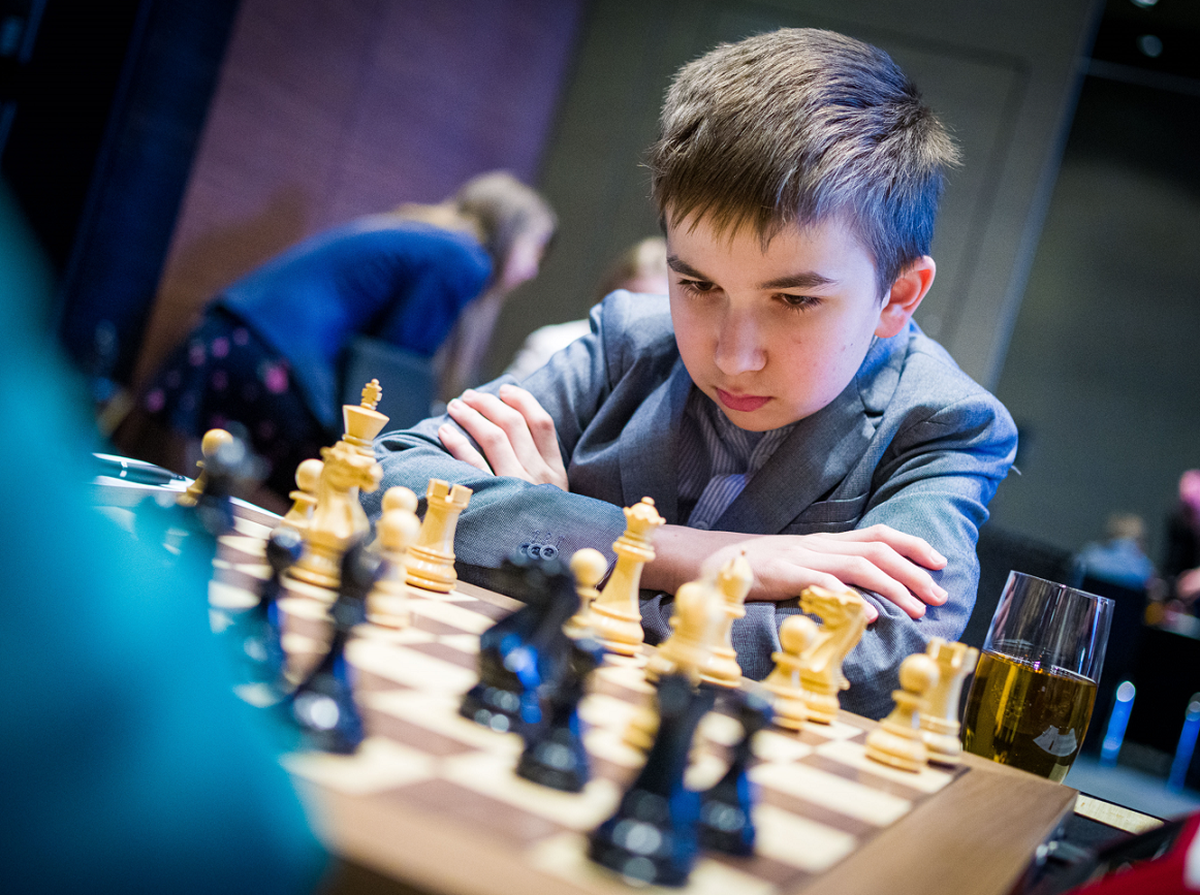
JK: Do you also read chess books, for example by Kasparov, or do you consider them to be ancient history of chess?
PC: Yes, I really like chess books. I have already read "My Great Predecessors", but sometimes I also reread games from them. Recently, for example, I analyzed games from the Kasparov-Karpov match, commented on by Kasparov.
JK: How did your adventure with chess begin?
PC: When I was little, I knew how to set up the pieces because my grandparents taught me, and sometimes I played with them, for example, on vacations. In second grade, I joined the chess circle at school, which my grandfather took me to, and then when I was 9 years old, Mr. Machowski organized a tournament at school and he was short of participants, and since it was an interschool tournament, I could participate in it. After that tournament, I found the GKS Hetman Katowice club and that's how my adventure with chess began.
JK: What is your best memory associated with chess?
PC: My best chess memory was when I stood on the top step of the podium at the European Championships for under 12 in Turkey, and also a nice memory is the victory over Grandmaster Alexander Fier.
JK: Do you have any chess idols whose games you love to watch and analyze?
PC: Currently, apart from Magnus Carlsen, because he is currently the best chess player in the world, I really like Richard Rapport and Anish Giri. I consider their games to be very creative and worth analyzing. You can also see various aggressive ideas for attack in them.
JK: How do you like the World Championship match between Ding and Nepomniachtchi?
PC: This World Championship match is very interesting. The games are complicated, the situation in them changes quickly, and it is not a boring World Championship match with many draws. Each game can be decisive, there are many wins for one side or the other. Now there are tiebreaks (the interview was recorded during the tiebreaks of the Nepomniachtchi-Ding match - ed.), and anyone can win the title.
JK: Who are you rooting for between Ding and Nepomniachtchi?
PC: I think I am rooting for Ding, because he collaborates with Richard Rapport. Ding plays various very interesting things and certainly shows a lot of creativity in his games.
JK: What are your plans for future tournaments or do you plan to have some chess vacations?
PC: In May, I am participating in the Polish Olympics for under 14 years old. Later, in June, I will also play in the Team Polish Junior Championships Ekstraliga and the Prague Futures Festival. Then we still have several tournaments, including the European Championships after the summer. I have a few other tournaments planned as well.
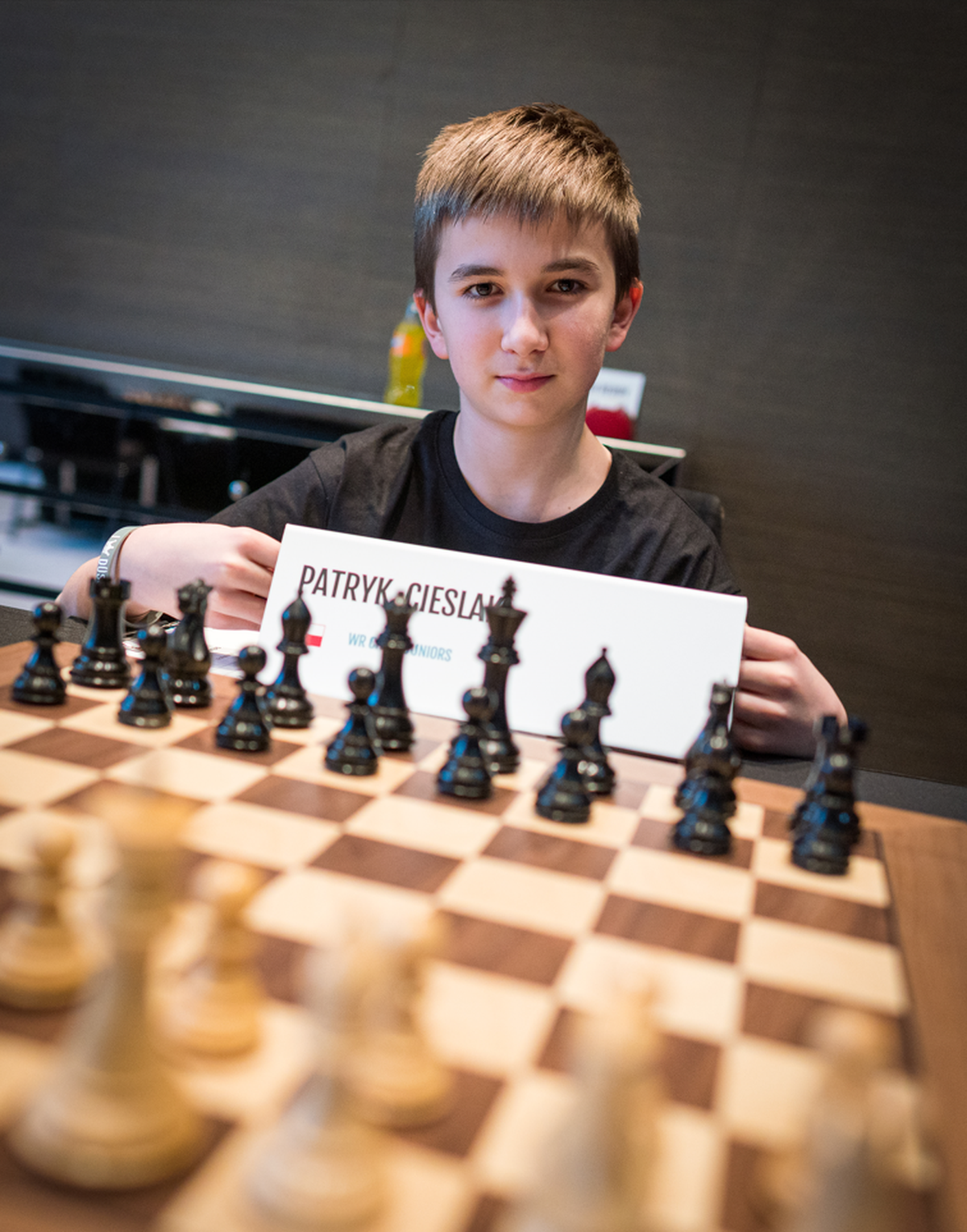
JK: Do you have any time for additional hobbies while playing in so many tournaments?
PC: Yes, I have time! I also have swimming classes at school, and once a week, I try to go to the pool. I also really like to play table tennis in my free time.
JK: Do you plan to change age group at the Polish Junior Championships, for example to play in the under-18 group?
PC: I don't know yet. My level has only recently improved and this year I will be participating in the Polish Championships for under-14s, but next year I think there may be a chance for me to move up to the next age group.
JK: Will you immediately compete for medals when you move up to the older age group, or will it mainly be an opportunity to gain experience?
PC: I think that if I moved up to the next age group, I would definitely have a good chance of competing for medals, even gold. Despite my lack of experience, I want to fight for it.
JK: Which game do you consider to be the best one you have played?
PC: Recently I played a game with FM Aron Pasti. I really liked it because it was a very well-played game on my part, which ended in a technical victory, with practically no major mistakes.
JK: Do you want to greet anyone?
PC: I would like to greet my coach and my family.